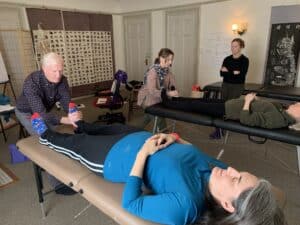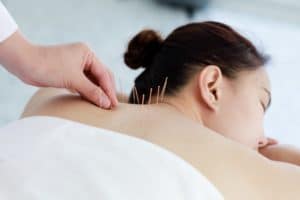Sciatica, in layman’s terms, is a widespread complaint. It covers a common set of symptoms – low back, hip, buttock, and radiating leg pain – that can result from various problems that create compression of the sciatic nerve (a large nerve that passes from the lower spine through the buttocks, and down to the heel). Sciatic pain can be quite severe, and may significantly impede activities of daily living, such as walking, driving, and sleeping. While mild sciatica may fade with time, some people with sciatica experience severe symptoms that may lead to numbness or loss of bladder control. In severe cases, doctors may recommend surgery and powerful pharmaceutical medications that could trigger unwanted side effects or consequences. However, those in search of a more natural approach to sciatic pain relief may find that acupuncture therapy is just as effective—if not more effective—than a pharmaceutical-based approach.
Mechanisms of Sciatica
True sciatica is a syndrome in which a herniated disc, bone spur, or spinal stenosis compresses part of the sciatic nerve. Often, what people call “sciatica” is caused simply by very tight muscles in the buttock irritating the sciatic nerve. This is called piriformis syndrome and mimics the symptoms of sciatica. (The piriformis is a buttocks muscle.) When the sciatic nerve is compressed, a person may experience radiating pain through the hips, backside, thigh, and calf. Usually, sciatica only affects one side of the body.
Those who are older, heavier, or diabetic are more vulnerable to developing sciatica, as are those whose jobs require them to carry heavy loads, twist the spine often, or drive or sit for a long period of time. Lack of movement and a stationary lifestyle are major risk factors for sciatic problems – even gentle movement can help prevent problems!
If you have symptoms of sciatica and your condition does not improve through self-care interventions, such as performing core-strengthening exercises and maintaining proper spinal alignment and posture, doctors may prescribe medications, including anti-inflammatories, muscle relaxants, or narcotics. Many of these drugs come with unwelcome side effects, and they fail to address the root of the problem.
Therapeutic Effectiveness of Acupuncture for Sciatica
Although more comprehensive clinical studies of acupuncture’s effectiveness in addressing sciatica are needed, the current literature indicates that a series of acupuncture treatment sessions can effectively relieve leg pain associated with sciatica. A 2015 systematic review and meta-analysis of the effectiveness of acupuncture for treating sciatica stated, “the use of acupuncture may more effectively relieve leg pain/lumbago and improve global assessment of sciatica when compared with NSAID (ibuprofen, meloxicam, and diclofenac) treatment.” Acupuncture temporarily stimulates inhibitory nerve fibers, ultimately slowing the transmission of pain signals to the brain. According to another 2015 systematic review, a series of acupuncture treatments can activate “endogenous analgesic mechanisms, causing secretion of endorphin[s]” and “triggering release of adenosine, producing a rapidly effective analgesic action on radicular sciatica.” While there is a need for a larger volume of studies, “numerous observational studies have revealed therapeutic benefits of acupuncture in sciatica treatment, highlighting the strategy of concentrating on the BL (Bladder) and GB (Gallbladder) meridians.”
Find Relief From Sciatica Pain Today
Even mild sciatica symptoms can grow to become severe, so it’s important to seek relief as soon as possible. The earlier you are able to intervene and address the source of the pain, the better your chances of preventing the sciatica from becoming more debilitating. If you are looking for a natural alternative for sciatica pain relief, consider scheduling a consultation with an acupuncturist to discuss your specific needs.
If you are experiencing sciatica-related pain, Five Element acupuncture may offer you the relief you seek. Contact Inner Works Acupuncture in northwest Portland at (503) 227-2127 today to schedule an appointment.




